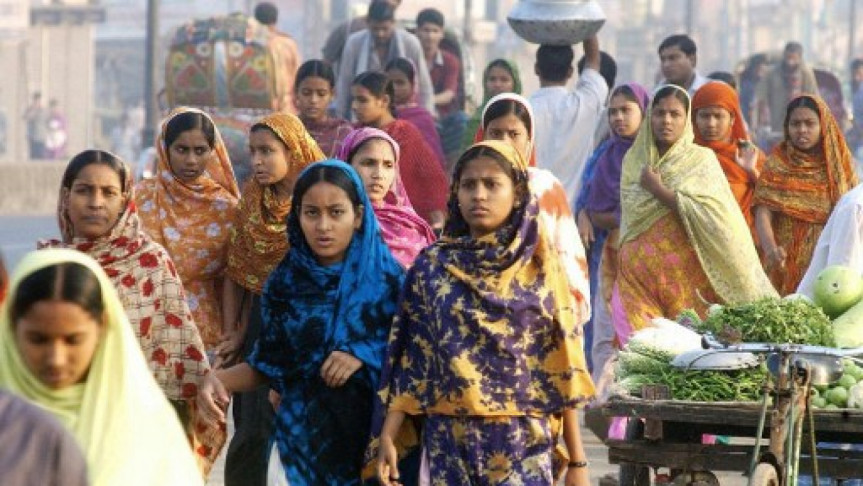Charity targets spinning mills in India, Bangladesh to end slavery in fashion industry

New Delhi: One of the most effective ways to curb forced labour in the garment industry is to target cotton spinning mills, where workers can provide valuable information about the source of material in the fashion supply chain, an anti-slavery charity said on Friday.
The apparel industry has come under pressure to improve factory conditions and workers’ rights, particularly after the collapse of the Rana Plaza complex in Bangladesh more than three years ago, when 1,136 garment workers were killed.
Following the tragedy, numerous initiatives were launched by global brands and charities to promote openness and safeguard employees, from ensuring the safety of buildings to providing better pay and working hours.
But while most projects focused on farmers growing cotton in the fields or factory workers stitching clothes, few work with the spinning mills in the middle of the supply chain.
Run by the California-based charity As You Sow, the Responsible Sourcing Network (RSN) on Sept. 1 launched a project focusing on mills in India and Bangladesh that altogether employ hundreds of thousands of workers.
‘Located in the middle of the supply chain, spinning mills are uniquely positioned to identify cotton produced with forced labour and prevent it from entering corporate supply chains,’ Patricia Jurewicz, RSN’s director, told the Thomson Reuters Foundation.
‘Our initiative targets the most opaque place in the supply chain, where yarn spinners blend different types of cotton together,’ she said. ‘They are the key to knowing if the cotton that gets spun and woven into our clothes was harvested under forced labour conditions.’
Also, Jurewicz said thousands of young women are kept in bonded labour in spinning mills in southern India, where they have been lured from their homes with the promise of a good job but in reality work in appalling conditions.
A 2014 report by the Dutch Centre for Research on Multinational Corporations (SOMO) found women in mills were forced to work long hours for low wages with no contracts, no paid leave and little freedom of movement.
The United States and Britain have adopted laws that ban the import of goods produced by forced labour or require companies to report action taken to address slavery and trafficking.
As consumers and investors become more socially aware, they are demanding ethical manufacturing and weighing companies on human rights records.
RSN said its initiative, the Yarn Ethically and Sustainably Sourced (YESS), will train workers at spinning mills to identify forced labour and trafficking.
It also will help mills implement policies to improve worker conditions, assess their compliance and provide certification.
Major brands such as Adidas, Hudson’s Bay Co., BJ’s Wholesale Club and Woolworths Holdings Ltd. have expressed support and less than a week after the launch of YESS, a mill in India got in touch to ask how to become certified, she said.
‘This demonstrates there is industry demand for this type of verification,’ she said.

 Thomson Reuters Foundation
Thomson Reuters Foundation




